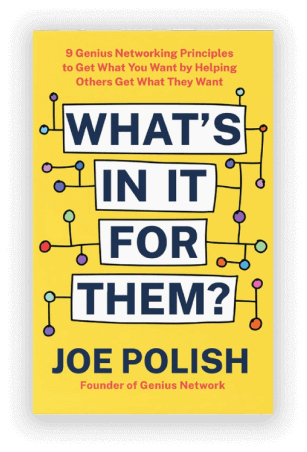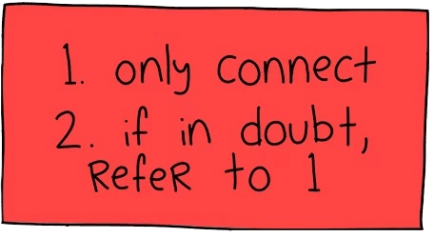Negotiation Mastery: Negotiation Lessons From A Former FBI Hostage Negotiator For Becoming More Persuasive with Chris Voss and Joe Polish – Genius Network Episode #138
Episode Summary
Chris Voss knows negotiations. From international crisis to high-stakes hostage and kidnapping situations, Chris has used his skill of negotiation to literally save lives. Now, Chris focuses on teaching business negotiations, which – perhaps not so surprisingly – follows the same framework. In this episode, Chris shares common negotiation mistakes, top-secret persuasion techniques, and how to gain influence and control within a negotiation – no matter how high the pressure.
If you’d like to learn more about the Genius Network Annual Event or to apply, go to www.GeniusNetwork.com.
Want to learn how to persuade like an FBI hostage negotiator? Chris Voss, a master of negotiations, tells you how you can use life-saving negotiation techniques to save your business in today’s Genius Network episode.
Here’s a glance at what you’ll learn from Chris in this episode:
- Why Oprah Winfrey is the greatest negotiator of all time (PLUS: The skills needed to be a great negotiator).
- Chris’ definition of “negotiation” and the most common mistakes to avoid when negotiating.
- A 30-second technique for making yourself 31% smarter and more effective.
- What “Never Split The Difference” means and why compromise is the dumbest idea on the planet.
- Why a “yes” response is meaningless (and how to know if you’re getting “false yeses”).
- What the best negotiators do to get results under extreme pressure.
- How to get what you want by being assertive while maintaining an empathic relationship.
- One of the most effective ways to spot a liar (Chris shares EXACTLY what to look for).
- The three voice tones you can use when negotiating and when to use them.
- Is there any person or situation you can’t negotiate with? Chris reveals the truth…
- The Subtle Art of Bending Reality: How to use emotional drivers to get what you want.
- How to use the “Proof of Life” strategy to gain control and influence within a negotiation.
- What to do when a negotiation goes bad (AND: The most surprising thing Chris learned working for the FBI).
- The surprising reason why you want to think about predictability (not trust) in relationships.
- How to protect yourself from being taken advantage of and create REAL win-win outcomes.
WHAT'S IN IT FOR THEM?
Get the first chapter for FREE and a limited-time viewing of "Connected: The Joe Polish Story"
Show Notes
- The same set of rules apply to all negotiations.
- The Black Swan Group helps people cut negotiation times for their clients.
- His first negotiation was a bank robbery with hostages – he followed a framework.
- Oprah got Lance Armstrong to admit to everything on-camera – he agreed to it all in advance.
- Oprah’s team does a lot of what they do, but in a different way and for a different purpose.
- Negotiation is communicating to accomplish a result. It includes gathering and using information and emotion.
- Most people are hardwired for “yes” and terrified by “no” but that shouldn’t be the case.
- Reframing a question to have a “no” answer can yield surprising results.
- Someone saying “You’re right,” is very different than if they say, “That’s right.”
- “That’s right” means they agree 100%, are all-in, and feel empathy from you – Chris shares a real-life example.
- Sociopaths are good at empathy because it’s quick and sustainable.
- There are three voices: one that’s honest and assertive, one that’s happy – you smile, which hardwires your mood and makes you smarter- and “late-night FM DJ”.
- It’s not the fact that you didn’t get the deal that kills you, it’s the time it took to not get the deal.
- Decisions are based on how we calculate loss; figure out how to change the loss in your prospect’s mind.
- Don’t pitch value, pitch loss. You need to figure out the loss your prospect sees and frame your pitch around it.
- A “Black Swan” is the unexpected tiny thing that’ll change everything and there’s one in every deal.
- Get people to talk when they aren’t guarded – that’s when you’ll get the truth and the loss they fear.
- Two-thirds of the time, questions aren’t the best way to get information; say something like, “It seems like you’ve given this a lot of thought” (an observation).
- A liar knows they’re lying. They talk at length and try hard to convince you. A truthful person doesn’t need a lot of words and will get frustrated if you don’t get it.
- Assert your own interest but let it land in an emotionally intelligent and empathetic way.
- Articulate the negative as an observation and let the otherside talk first.
- If you let them go first, you’ll find something you love.





